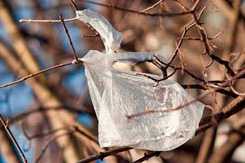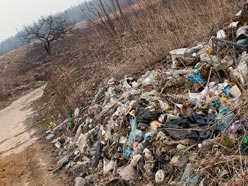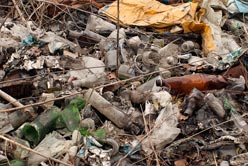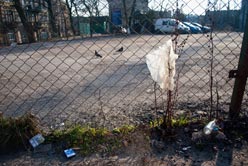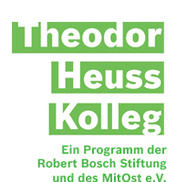The Earth in a Plastic Bag
May 23-29, 2011
Center for Urban History, Lviv
This exhibition is part of the Earth in a Plastic Bag project, a grassroots initiative organized by the concerned youth of Uzhhorod and Lviv. The projects are made possible by Theodor-Heuss-Kolleg, a program of the Robert Bosch Stiftung Foundation, the art center Kublo, and the artist’s alliance Rotunda.
Theodor-Heuss-Kolleg program’s efforts are geared towards enhancing inter-cultural communication and supporting community events initiated by youth in Central and Eastern Europe, in order to lay the foundation for building civil society in these areas.
In addition to the photo exhibition, the following events were also held:
- 25 May at 6.30 pm—screening of the film Addicted to plastic directed by Ian Connacher;
- 26 May at 6.30 pm—a workshop on how to make environmentally friendly bags. Each participant will have the opportunity to make a personal plastic bag alternative.
These events hope to popularize European attitudes towards the environment (which is a mandatory feature of civil society), to increase awareness of polyethene’s impact on the environment, and to help people understand their personal responsibility for the harm that plastic inflicts on urban and rural environments. Organizers hope that the project will encourage people to partially or totally abstain from using polyethene in their routine lives.
The proposed alternative for plastic bags is the eco-bag, a cotton tote for everyday use. Using an eco-bag will reduce the demand for plastic. If the average person shops three or four times a week and each time buys a plastic bag to carry items home, then each person brings home about of 160 plastic bags a year. An astonishing number (90%) of them are not reused but simply thrown away. If a person uses an eco-bag then they reduced the number of plastic bags in our environment by 6-7 a week, or 288 a year. If at least 1 of every 5 persons living in Ukraine used an eco-bag instead of plastic bags, the number of plastic bags used would drop by 300 million per year.
When buying plastic bags we rarely think about what happens with them after we have used them, but…
- ¼ of all the world’s waterways are polluted with plastic
- 1 million birds die each year after ingesting plastic waste. Many birds feed their fledgelings plastic.
- We cannot even begin to accurately count the number of fish that die from "white pollution."
- In the polluted Atlantic Ocean, the volume of polyethene is 6-20 times greater than the volume of zooplankton.
Despite these statistics, the world continues to produce 60 million tons of plastic bags of year.
Polyethene takes an average of 150 years to decompose. In European countries, the production of plastic bags has already been outlawed or heavily taxed. Bangladesh, Rwanda, Israel, Canada, the western provinces of India, Botswana, Kenya, Tanzania, the South African Republic, Taiwan, Singapore, Ireland, and Australia have all outlawed the production and use of plastic and similarly environmentally caustic bags. In Ukraine polyethene products are only outlawed in the city of Novomoskovsk, Dnipropetrovsk region.
